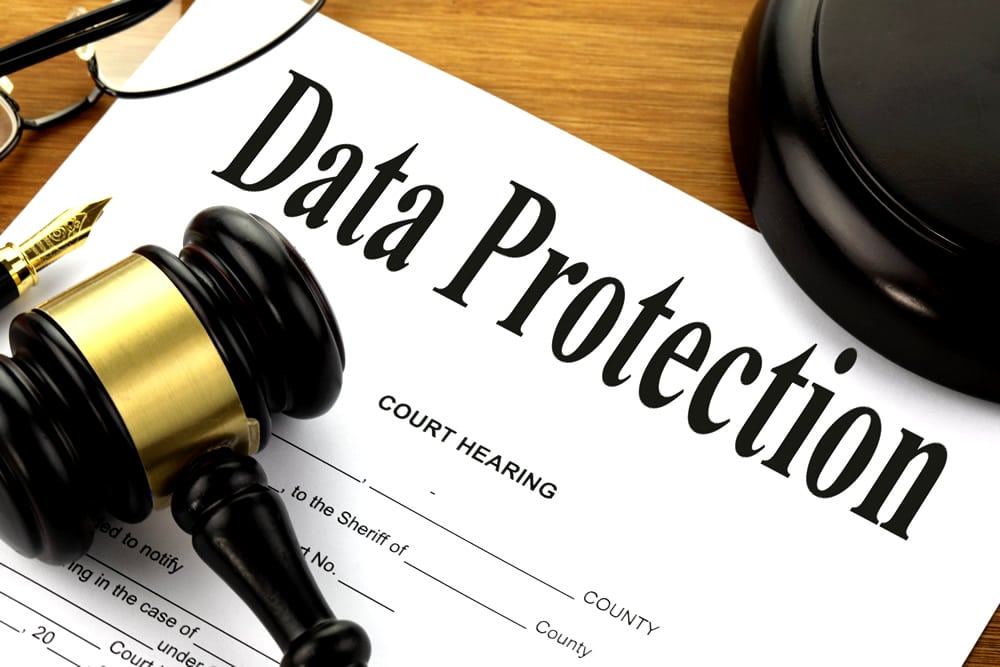Data protection for companies has acquired unimaginable relevance in recent decades. Talking about data protection today is synonymous with information security, protection of personal data, and in more up-to-date terms, Cybersecurity and Privacy.
Data protection is defined as all the processes, tools, techniques and methodologies that are applied in order to keep safe and protect information. Such information is sensitive and must be protected within an organization from internal and external threats.
Currently, any company or organization that does not have data protection is exposing itself to various operational risks. Similarly, it is vulnerable to economic losses and risks associated with the company’s reputation, to name just a few.
What is data protection for companies?

Data protection for companies basically refers to those processes and strategies that are aimed at safeguarding sensitive information. Said sensitive information may be related to people who live in the company, organizations and suppliers. It seeks to protect access to this information from those external agents who may use it without consent.
In the same way, it is a methodology whose purpose is to shield all the data generated from corruption practices. It also seeks to prevent data loss due to negligence, information leaks, storage system failures or other causes.
Usually, most data protection methods and processes for companies are based on sophisticated backup and restoration protocols. So when talking about data protection, the personnel in charge of this area is called an agent or protection officer.
This person or department is primarily responsible for clearly identifying sensitive data and planning strategies and policies to safeguard such information.
At Virtual CNS we specialize in the security of small and medium-sized companies. Discover all our services in the following link: Managed it services for small businesses.
Private data: what is it?

It is very important to be clear about what private data must be protected using data protection strategies for companies. It is essential to define this concept, since being an ambiguous concept could generate some confusion.
Currently there is the so-called General Data Protection Regulation (RGPD), also known in the European Union as General Data Protection Regulation (GDPR).
You can access the official page of the European regulation for more information: General Data Protection Regulation (RGPD).
In these regulations, especially the one of the European Union mentioned, defines private data as information that meets the following requirements:
It is information registered as part of a filing system or intended to be part of an established one. It also includes information that is part of an accessible record or is held by the public authority. In a few words, private data is understood as information about a person or organization that can identify or is identifiable.
Such data may include sensitive proprietary knowledge that could put the interests of those who own it at risk if it falls into the hands of third parties.
Importance of data protection.

There are many risks associated with the manipulation of the company database. That is why it is essential to establish data protection for companie.
Every company is obliged to establish safeguard and protection mechanisms. This must be done for each sensitive data of the company.
To all of the above we must add the great competitiveness that exists in almost all business sectors. Today, users and customers demand armored systems for their data. This shows that the need for protection is very evident.
However, it is important to clarify a relevant aspect about the importance of data protection for companies.
The protection of sensitive information is of vital importance. But it is not the main reason why companies request these services. The real reason is another. And it is that it has become an obligation by law in several countries of the world.
In the United States, Spain, Colombia, Mexico, Argentina, Chile and many other countries, there are laws on data protection for companies. For example, in Mexico there is the Federal Law on Protection of Data Held by Private Parties, which establishes specific measures for data processing at a technical, physical, and administrative level.
Federal Law on Protection of Data Held by Private Parties.
For this reason, data protection for companies is currently an obligation in any business or serious company, regardless of the sector, size or seniority.
Benefits of data protection for companies.

There are several benefits of having data protection for companies. Basically, the first benefit is that you will avoid sanctions, since as we have mentioned, there are regulations in various countries on data protection that are mandatory.
Another benefit is that it improves the image of the business. Currently customers and consumers are very aware of how important it is to keep their personal data safe. For this reason, they highly value companies that offer and ensure good protection of their personal data.
Finally, data protection for companies improves security. And it is that when a company or freelancer applies data protection correctly, it is understood that it is working on the safety of all.
At Virtual CNS we specialize in the security of small and medium-sized companies. Discover all our services in the following link: Managed it services for small businesses.
You may also be interested in:
What is an operating system and what are its types?
Discover the most important types of computer networks.
